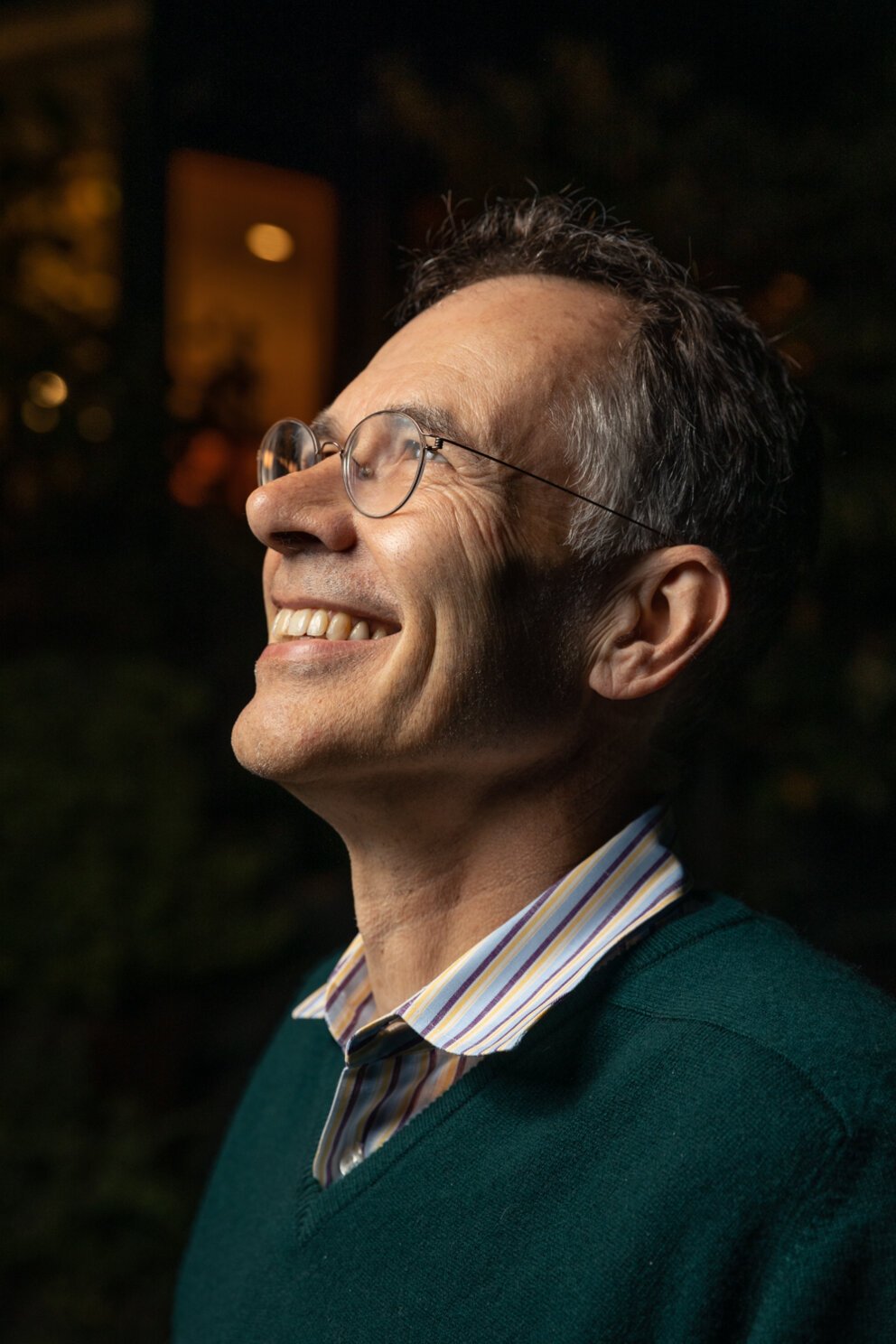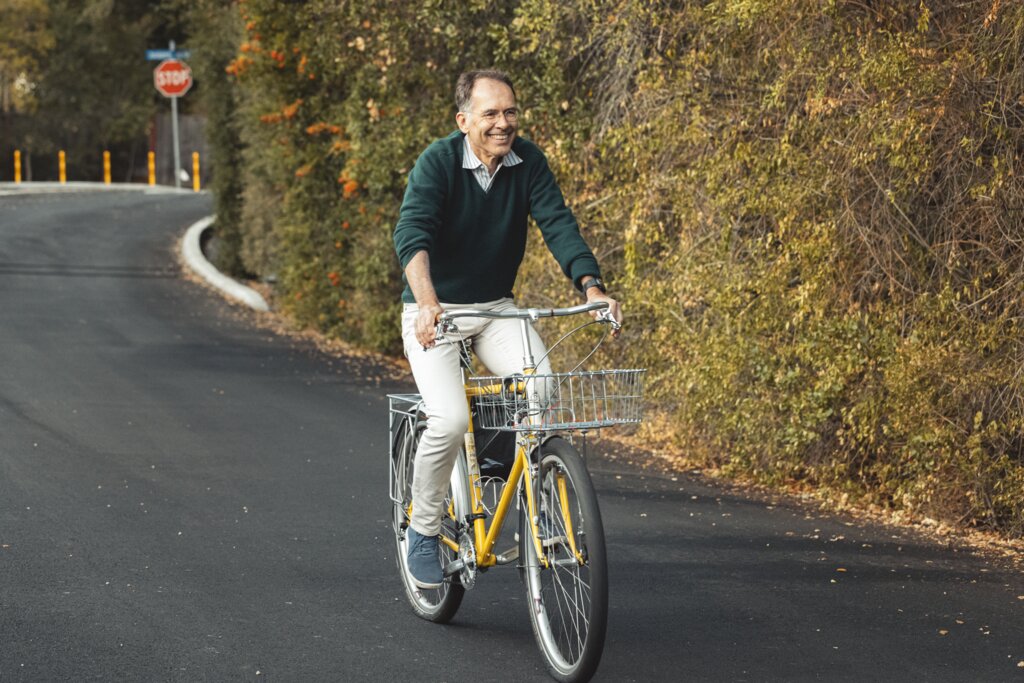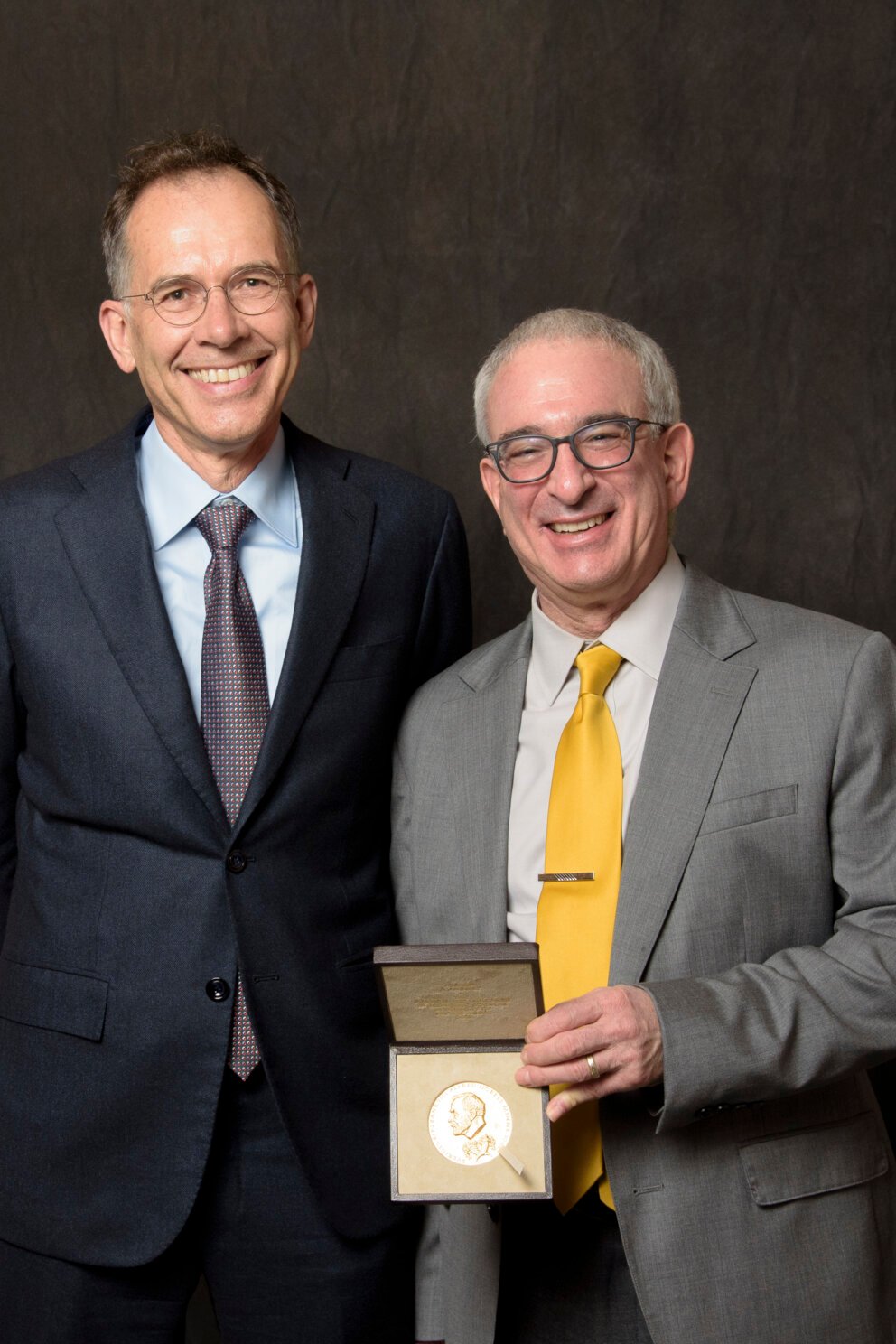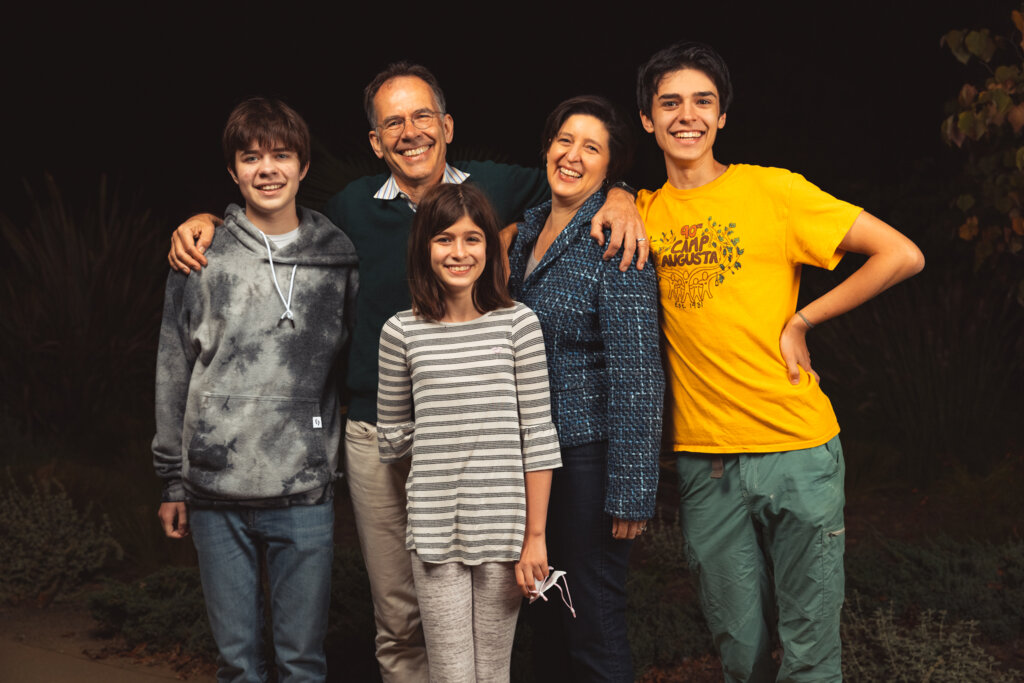“You need to have trust to be able to do good work”
Interview with Guido W. Imbens, February 2022
Nobelprize.org interviewed Guido Imbens on 7 February 2022. We spoke with him about how free time can provide space to think and the importance of friendship and trust for a successful collaboration.
Can you tell us about your childhood and how you became interested in economic sciences?

Guido Imbens
Photo credit: Andrew Brodhead, Stanford University.
Guido Imbens: I was born in a small town in the south of the Netherlands, Geldrop. The nearest big town was Eindhoven, which in those days was a company town. The Phillips electronics company had their headquarters there and employed a large fraction of the population there. So both my parents worked there for a while. My father worked there his entire career. When I was about six we moved to Eindhoven and then later to another small town about 20 miles east of there called Deurne, which is where I went to high school.
Neither of my parents had completed a university degree. My father had spent one year at university, but then he started working. This was in the fifties when Holland was still rebuilding after the war and studying wasn’t quite as common as it became later. But they were both very intellectually oriented and they stimulated that in us. So both my siblings and I ended up going to university. In fact, my brother got a PhD in mathematics. That was something that was very much stimulated, not in the sense of putting a lot of pressure on us, but they were very interested in us going to university and pursuing intellectual endeavours.
In my teens, I played a lot of chess which in some sense, was actually very useful in learning how to focus on problems for a long time. I still find that a very enjoyable thing, sitting in my office and not doing email, not talking on the telephone, just struggling with theoretical problems and trying to figure them out, trying to think very deeply about the problem. It’s hard to find the time to do that for long stretches of time, but that’s something I enjoy very much and I still try to find time to do that. From my perspective, that really goes back to those days.
Do you see a lot of parallels between chess and what you’re working with now in your research?
Yes. At some level, I see a lot of what I do as trying to solve puzzles, trying to come up with theoretical questions and trying to solve them. And the ability to sink deep into a problem is really the key thing, and where chess I think is very helpful.
Do you still play chess now?
Not very often. One of my kids got interested in it during the pandemic. So for a while we would play a lot. Actually we started playing this 24 game match, which we were almost done with, but then we postponed for a while because he was doing other things. But at the beginning, clearly I was still better, but by the end he’s clearly a better chess player than me.
We hear you enjoy biking too. How important is free time to you?
I think for everybody these days it’s very hard to get away from all the electronics and all the constant stream of information with social media, with email, with lots of things. So biking is just a very good way to get away from that because you’re not doing email, you’re not doing any social media, you’re not working on the computer. It’s a great time to think and to unwind. So certainly one of the things I do while biking or running or walking is thinking through problems I’m working on, but it forces me to do it at a more abstract level because obviously I don’t have a computer, I don’t have pen and paper, but I can just mull over problems and keep turning them over and think about fruitful directions.
It’s a very relaxing activity for me. I do both road biking and mountain biking, but I don’t do very complicated stuff. So I don’t need to really focus on the biking itself. It’s much more of a relaxing thing where I can think about questions. Having the physical activity and the freedom to think at the same time, I just find very relaxing and productive.

Guido Imbens enjoying a bike ride – one of his favourite hobbies.
Photo: Andrew Brodhead, Stanford University
Can you tell us what you like most about your work?
It’s probably two things. It’s talking with the students and seeing them grow as researchers, and being able to influence them and seeing them kind of develop their own ideas. And just sitting in my office, working on problems and feeling I’m making progress. The thrill of feeling I’ve learned something that I didn’t know before – more than the actual process of getting things published, but the point where I feel like, yes, I know something now that I didn’t know before and that I think is useful.
What advice would you give to a student or young researcher?
Looking more narrowly at my students who are working in econometrics, I try to encourage them to really spend a lot of time talking to people doing empirical work and people doing more applied economics rather than getting their inspiration from reading journals. I really try to get them to focus on problems that are more directly useful for people actually analysing data and collecting the data. Over my career, I’ve really benefited a lot from collaborating closely with people like that. I see econometrics at some level, as a service field, we’re trying to help economists do better data analysis, do better empirical work and so to do that, you need to talk to the people who are actually doing the empirical work.
We understand that you are close friends with your collaborator and co-laureate Joshua Angrist – and that he was even the best man at your wedding. Do you think it’s important to become friends with your collaborators?

Economic sciences laureates Guido Imbens and Joshua Angrist at Angrist’s prize award ceremony in Washington DC on 6 December 2021.
© Nobel Prize Outreach. Photo: Risdon Photography
Yes, totally. I would find it very hard to write papers with people that I’m not friends with, that I don’t like to spend time with. I can’t be very close friends with all of them, but writing a paper is a vulnerable process. You share ideas, some of them are not going to work out, some of them are not good ideas, you make mistakes, so you need to have a fair amount of trust and a level of comfort with people to work with them.
Nowadays we can do a lot over the internet, but I would still find it very hard to start working with people if all I’d done is meet them over the internet. I do want to spend some time with them. I want to have coffee with them. I want to talk to them. I want to understand how they think about problems, how they work because it helps me interpret what they do in the course of these collaborations, how they like to write papers, how they think about having speculative ideas, whether they’re defensive about making mistakes, how they’ll respond if I make mistakes. Research is very difficult and when you’re doing this together, you need to have a fair amount of trust to be able to do good work.
It must have been really special to be awarded the prize with your best friend.
Yes, that was very special. That was my first question when they called me on October 11th – who I was going to be sharing it with. It was just very exciting to hear that I was getting it getting it with Josh. David Card‘s a very good friend of mine as well, I was his colleague at Berkeley, but Josh has really been my best friend in the profession since very early on. So that was really very special.
How have you found the time since your prize was awarded?
It’s been fun. It’s been a little strange with almost all of it being over zoom, but it’s been a lot of fun. It’s been particularly interesting to see the reaction in the Netherlands where they were very excited about it. One of the things that I find very nice is, unlike the Olympics where you always see these rankings, like the US has ten medals, Sweden has five, England has seven, here it seems much less exclusionary. So my high school is very excited. They claim me as one of them. The university I went to in the Netherlands is excited, the graduate school I went to in the US is very excited, UCLA where I was on the faculty was very excited – everybody shares it rather than it being very exclusionary.
We saw a sweet video of you and your children after the news was announced – where they were explaining your research in their own words. How was it to share that moment with them?
Obviously from my perspective that was just one of the absolute highlights. The kids were obviously very excited, but that was just incredibly nice to see, incredibly rewarding. In that sense it was so nice to get the prize this year, despite the pandemic, but having all three of the kids there. The oldest is a high school senior so he’s going to go off to college next year, but having all three of them there was just really special.

Guido Imbens, center-left, with his wife, Susan Athey, and three children in the morning after the announcement of his prize in economic sciences.
Photo credit: Andrew Brodhead, Stanford University.
This interview has been edited for length and clarity.
